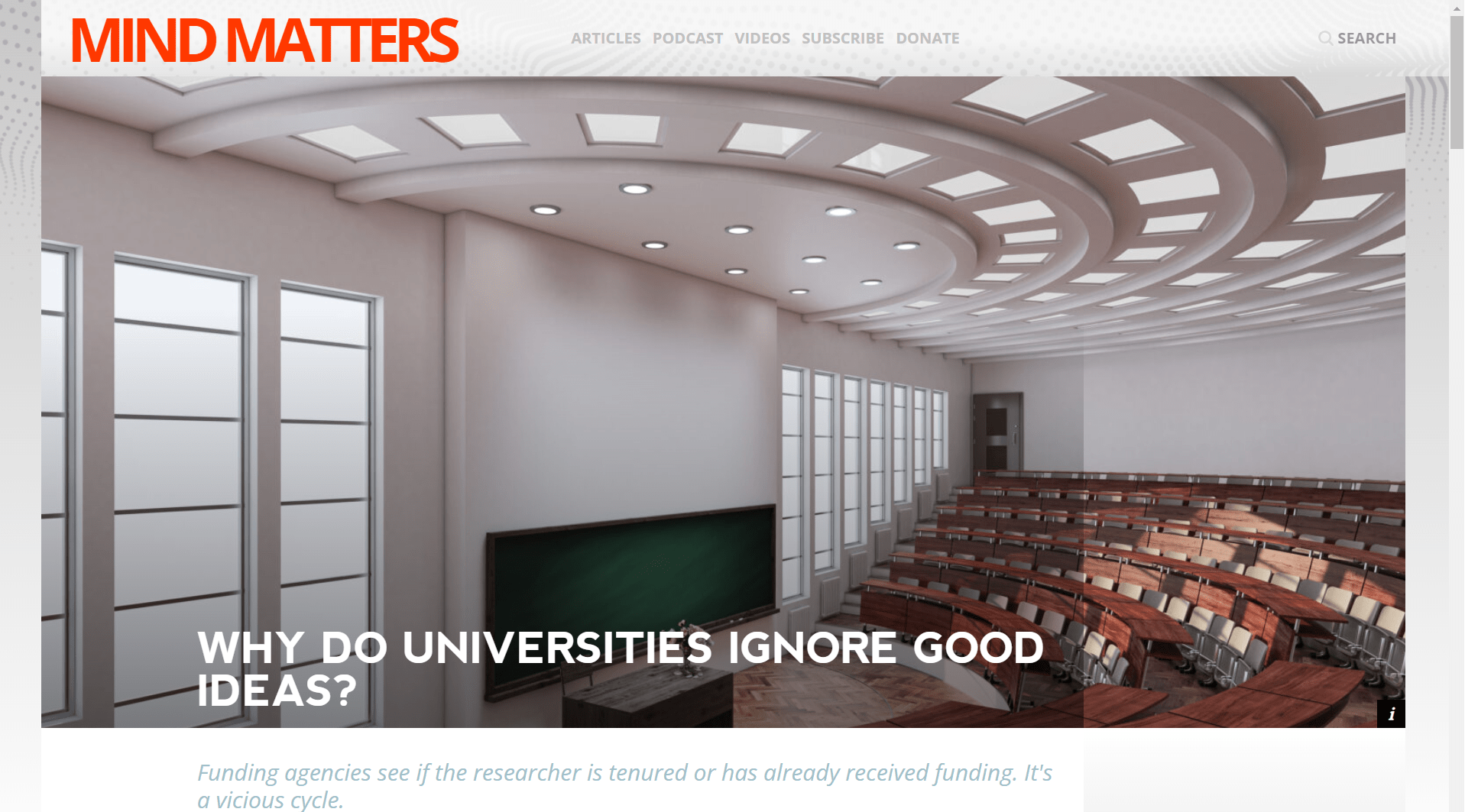A scholarly colleague of mine wrote in a response to a recent story about the malpractice in academic publishing:
Perhaps due to big incentive to write to get published, and not to innovate . Academia has increasingly become a bubble pre-occupied with tenure & commercial potential as a consequence of corporately funded foundations with agendas. As such the opportunities for true originality are not lost, but substantially diminished, and so much research seems to be an extrapolation of current scientific orthodoxy.
I heard a comment once that a paper cannot be published, because the solution is too simple. Nobody found the simple solution before, but journals expect complicated solutions(???)… 🙂
— The University of Pennsylvania repeatedly shunned Nobel Prize Winner Katalin Kariko and her research over three decades, despite its groundbreaking potential,” according to eight current and former colleagues, because she couldn’t get financial support, nor could she get enough papers published.
Science magazine tells the story of her 2005 paper with Drew Weismann. After being rejected by Nature within 24 hours: “It was similarly rejected by Science and by Cell, and the word incremental kept cropping up in the editorial staff comments.”
Incremental? There are more than two million papers published each year and this research, for which Kariko and Weismann won a Nobel Prize, was deemed incremental? If it had been rejected for methods or for the contents being impossible to believe, I think most people could understand the rejection. But incremental?
Furthermore, this is happening in a system of science in which even Nature magazine admits “disruptive science has declined,” few science-based technologies are being successfully commercialized, and Nature magazine admits that it doesn’t understand why. —
Indeed, the academia.edu community/communities is making a mockery of the early 21st century academia industry. It is a complex story, but still the foolish decision-making within the “college”/”colleges of colleagues (collegial communicative actions, failure of) is the demise. The particular story my friend was responding to was complex. All publishing processes are complex. BUT it is time for Vice-Chancellors, and the Deans, face up to the issue, and make bold action.
The story of malpractice was published in an article entitled, WHY DO UNIVERSITIES IGNORE GOOD IDEAS?, in Mind Matters. The story is damning even as each story has to be judged on its own merits. It provides several examples of malpractice in the absence of science publications.
It is for this reason I have been forced to be a blogger, instead of the employ or contract within the university. The upside of this arrangement is that I can speak out boldly while academics, and academic leadership, are force to cowered to the political force which is reshaping curriculum, and, on their conscience, they know the pressure of big business in the Senate or the Council is wrongly-placed cognitively. In terms of academic-general reading, I have a manuscript of the (hidden) Intellectual History of Queensland where I am trying to find publication support. It is a struggle, even as I have a successful history of the paper and book chapter academic publications. I will point out that none of those academic publications are in Queensland. Is it that Queensland institutions are afraid of self-criticism?
Featured Image:
Neville Buch
Latest posts by Neville Buch (see all)
- J. D. Vance’s Insult to America is to Propagandize American Modernism - July 26, 2024
- Why both the two majority Australian political parties get it wrong, and why Australia is following the United States into ‘Higher Education’ idiocy - July 23, 2024
- Populist Nationalism Will Not Deliver; We have been Here Before, many times… - July 20, 2024

